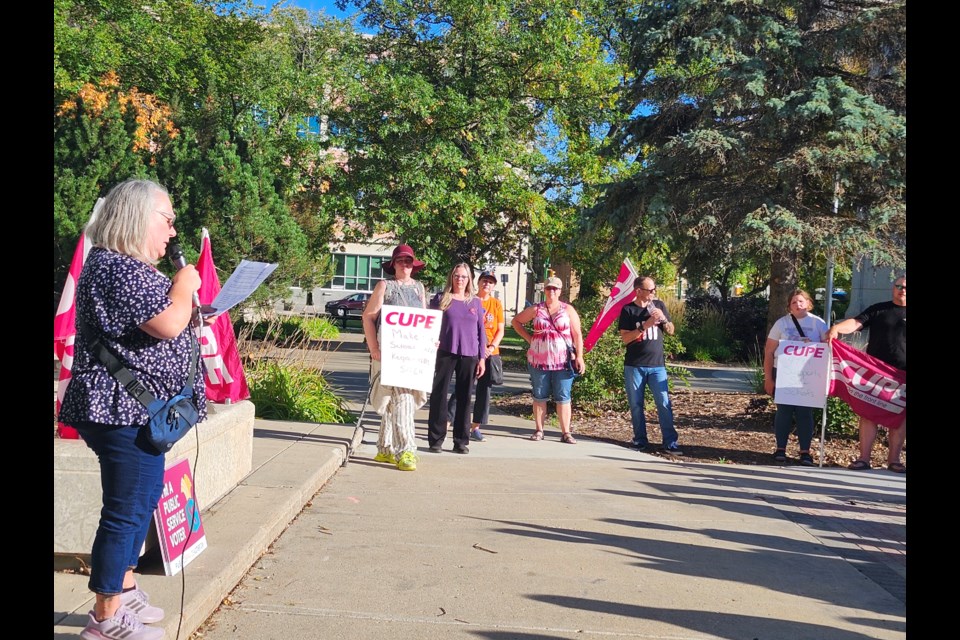SASKATOON — Karla Sastaunik and Jessica Brown both shared the sad state of violence Saskatchewan’s educational workers have experienced in the last school year at a protest event in Saskatoon.
Their statements were based on a recent report released by the University of Ottawa that showed an alarming rate of education sector workers have experienced harassment or violence in schools.
Sastaunik and Brown joined Canadian Union of Public Employees 8443 President Dene Nicholson, and over 75 members — some from Swift Current, Yorkton, and Regina — held a protest on Wednesday, Sept. 25, at Civic Centre Square. They called out the provincial government’s budget cuts in the education sector.
Organizers said the protest, which is in connection with the violent incident at Evan Hardy Collegiate early this month, is not only for those working in the education sector but for all members of each school community who came together to keep schools a safe environment for everyone.
Sastaunik chairs CUPE Saskatchewan’s Education Workers’ Steering Committee, while Brown is the president of the Saskatoon Teachers Association.
“We are here to call for safe schools, staff, and students. As an EA for over 37 years, I see first hand the violence in our schools is out of control. Every day, students and staff are put at risk. Our members are often told that violence is just part of our job,” said Sastaunik, representing more than 7,000 education support workers in the province.
“We’re here because violence is not part of our job. I want to be clear about this: we do not blame the students for the violence that our members are increasingly facing. The root of the issue is the lack of funding and short-staffing. CUPE members take pride in working with students who require intensive support.”
In the U of O report, researchers stated that harassment and violence became an “overwhelmingly part of the job” for Saskatchewan’s education sector workers. The study, conducted for the 2022-2023 school year, showed that seven of eight education workers experienced at least one incident of harassment initiated by students.
Eighty-seven per cent of education sector workers had also experienced harassment while another 84 per cent faced at least one act of physical force. Female education workers were more vulnerable as they encountered twice that of their male coworkers.
“Our union supports an inclusive education public system where all students can learn and develop their full potential. Education support workers have been asked to do more with less for years. We are at a breaking point. Chronic funding and cuts to staffing have left our members on the frontlines experiencing violence regularly. It is unacceptable, and it must stop,” said Sastaunik.
Brown added that the issue of escalating violence and harassment must remain in the public’s consciousness since schools should be safe places where students can learn and staff can work. However, this has happened after a decade of cuts and underfunding for the education sector.
“The deliberate underfunding of our schools has created a situation where students can not access the professional support they need. Teachers and support staff are burnt out, classrooms are overcrowded and underfunded, students are struggling, our government has the power to fix this. The reality is alarming. We can not allow this violence and trauma to become part of the job. We can not allow this to become the norm,” said Brown.
She said schools in the province need more mental health support for students, like having access to psychologists, counsellors, and educational assistants who can help them thrive and learn. Schools must also provide a safe and supportive environment for everyone.




